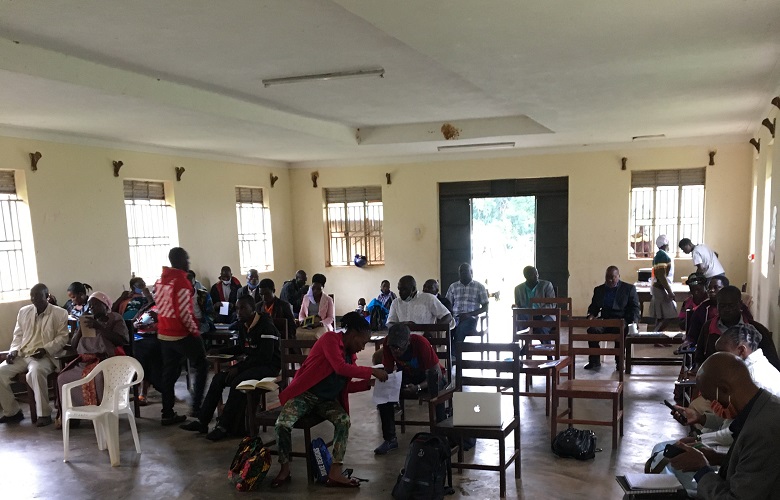Community members leave their homes after their village was set ablaze
By witnessradio.org Team
Kalangala – Uganda – Victims of land grabbing in Uganda are meeting for the first time to share experience and reach a consensus on how to push back land grabs.
The meeting has attracted victims from across the country among them include; Kiryandongo, Kalangala, Mubende, Buvuma, Mukono, and Kayunga who will also interface with victims of land grabs in other parts of the Africa continent.
The Ugandan group is expected to learn from other African countries on how to work together to find a joint solution to the endless land grabs orchestrated by international agribusiness companies and security.
The Country Director of Witness radio, Wokulira Geoffrey Ssebaggala says that victims are meeting to discuss land grab effects to family land, strategize approaches to promote food sovereignty, and at the end of a 3-day meeting, groups will form a national movement that will speak with a common voice against land grabbing.
“The land grab affected communities will discuss how investments respectful of rights namely sugarcane, maize, forest land, coffee, and palm oil among others should meaningfully benefit them as communities not to promoting dispossession,” Said, Wokulira.
He added that sharing experiences, learning best practices to pushing back land grabs as well as discussing opportunities to work together is high on the agenda.


The meeting which is organized by Witness Radio – Uganda, GRAIN, World Rainforest Movement (WRM), and Alliance for Food Sovereignty in Africa (AFSA) will also give women an opportunity to speak out about the impact of land grabs on vulnerable groups including girl child.
“Women face the gravest injustices because of land grabs and at the same time play a central role in food security and general household wellbeing. However, due to the nature of our society, they barely speak in public spaces hence the decision to have separate sessions for them”. Ms. Bridget Mugambe, the Country Representative, AFSA while speaking at the opening of the meeting.
The groups will also be empowered to understand land laws, land rights, safety, and security for community environmental and land rights defenders among others.